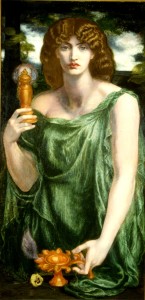Phraedus
Mnemosyne
Mnemosyne the Greek goddess of the mind is suddenly invoked in Critias (108d) to assist with the  recollection of the details of the Atlantis story. This has been seen by some, such as James Bramwell, as being in conflict with Plato’s explicit statement Critias (113b) that he was working from Solon’s written notes. Plato was advancing in years when he wrote Critias, so when he declares that as a child he memorised the names of the first kings of Atlantis it is quite natural that he expressed the hope that his memory was still reliable.
recollection of the details of the Atlantis story. This has been seen by some, such as James Bramwell, as being in conflict with Plato’s explicit statement Critias (113b) that he was working from Solon’s written notes. Plato was advancing in years when he wrote Critias, so when he declares that as a child he memorised the names of the first kings of Atlantis it is quite natural that he expressed the hope that his memory was still reliable.
To my mind, if Plato had invented the Atlantis story he would have had no reason to depend on childhood memories. In fact, unless we are to attribute very great deviousness to Plato, his very reference to Mnemosyne reinforces the credibility of his narrative.
However, as Nicholas G. Carr (1959- ) has explained(a), in the early 4th century BC Greece, writing was something of a novelty and viewed negatively by some, including Socrates. Although he was a writer, Plato was familiar with the important place that oral transmission had in Athenian culture. In fact, Plato discusses the subject of oral versus written in Phaedrus, in which ‘Socrates’ discredits writing as inferior to memory because it cannot be probed by questioning and so offers “the appearance of wisdom, not true wisdom.”
(a) See: https://atlantipedia.ie/samples/archive-3049/
